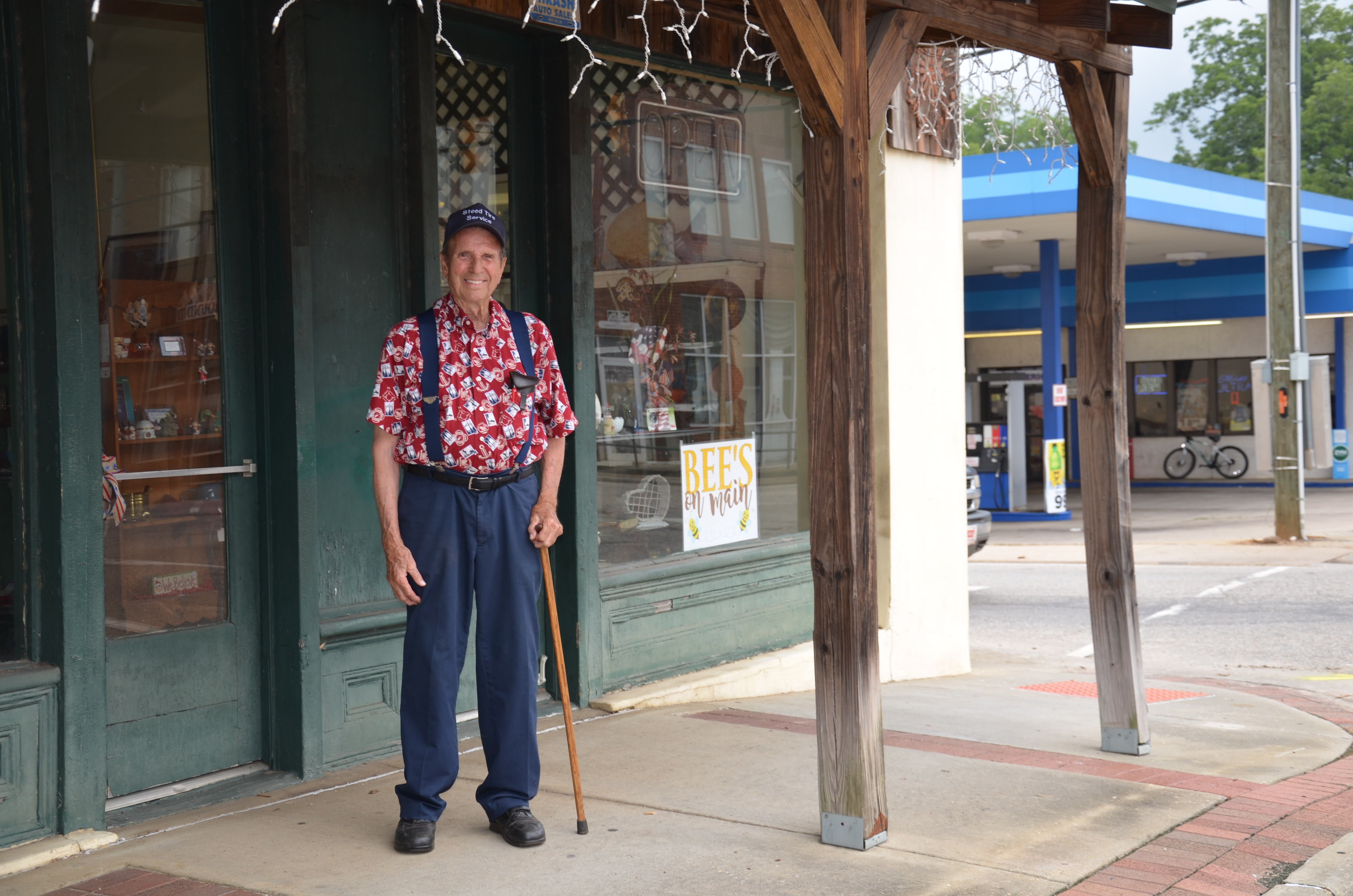HUSTLE AND BUSTLE: Steed looks back on thriving grocery store in downtown Brundidge
Published 8:35 pm Friday, June 21, 2019
Lamar Steed doesn’t show his age so it might be hard for others to believe that he has stories to tell about being a grocery delivery boy in the town of Brundidge.
Steed laughed as he remembered the year 1954 and the excitement and fulfillment he felt when Lamar Belcher found him responsible enough and dependable enough to offer him a job as a delivery boy at The City Market on the corner of Main and West Troy streets in Brundidge.
“That Mr. Lamar thought I could do the job, made me proud,” Steed said. “I wouldn’t take anything for the two years I worked for him and learned from him and got to know and appreciate so many people.”
Steed later worked for Kelly’s Tires and then owned and operated Steed Tire Service in Brundidge from 1977 until 2018. Those were good years.
“People in and around Brundidge supported us and Shirley and I really appreciated their business,” Steed said. “We’ll never forget how good people were to us.”
Steed has fond memories of “the tire store” but every now and then, he goes back and visits the “good ol’ days” when Brundidge was a bustling town and Saturdays were so packed with folks that you couldn’t even walk.
“I was a high school boy when I started to work at The City Market,” Steed said. “I delivered groceries on a 1949 Ford pickup truck, mostly to ladies around town. They would call in their orders and Mr. Lamar would get up the orders for delivery.”
Steed’s day started at 6:30 a.m. and ended at 6 p.m. except on Saturday’s when “country came to town.” Then it was or after 9:30 before he could get off.
“I made $150 a month,” Steed said and figured that to be maybe 50 cents an hour.
“The ladies I delivered to would give me to cookies and cake and, if I got there around dinner time, they would sit me down to eat.”
Steed also helped at the market.
“Mr. Lamar would order a quarter of a cow and hang it in the cooler until he had a customer, then he would cut the meat to order. He ground his own hamburger meat and cut up his chickens with a pulley bone. Fresh ham that wasn’t cut until it was bought. On Thursdays, the fish truck came from Warren’s seafood in Panama City. Mr. Lamar always bought mullet and red snapper and two cans of salt fish. We would be out of fish before we closed on Saturday.”
Steed said women from out in the country would trade yard eggs for their groceries. The fruits and vegetables came on a truck and shoppers served themselves.
“On Saturdays, the town would start to fill up around dinnertime and stay that way until after the picture show closed at 9 p.m. Men would wait until the picture show was over to get their haircuts and shampoos,” Steed said. “You couldn’t find a place to sit down in the barber shops. Store owners would be out sweeping the sidewalks at 10 o’clock at night. They would sweep the trash into the street and a city worker would come pick the trash up with a scoop.”
Steed said in those day stores lined both sides of the street and storeowners were diligent about keeping their shopfronts “presentable.”
“Starting on the north and west side of town, was the Western Auto, City Market, Parks Grocery, People’s Electric, Star Store (now ALFA), Logan Drug Store, Brundidge Bank, Francis Johnston Mercantile, S.E. Hightower, Steed’s Barbershop and John Boswell’s Dry Cleaners,” Steed said. “Then there was Walter Bass Dry Goods, Paul Hilreth Seed and Feed and the Post Office.”
Across the street to the north was the Greyhound Bus Station and Telegraph Office, Haisten Hardware, City Hall and Police Station. On the south side were First National Bank, V.J. Elmore, Johnston Drugs, Jackson Hardware, Jitney Jungle, M.L. McDowell Grocery, Stinson Barbershop, O.K. Ramage, City Café, Mable Belcher’s, Tyner Hardware, Wallace Pump & Supply, Perry Owens’ Ford Dealership, Anderson’s Hamburger Shop and Dickert Building & Supply.
“That didn’t include Nicholson’s and Black’s grocery stores on the back streets and the ice house and cotton gins and feed mills.”
“At that time, a lot of farmers brought their cotton to the gin on a mule and wagon,” Steed said. “Men would sit on window sills, on benches or just stand around and talk while they waited for cotton to be ginned and that might be up to 14 hours.”
Steed said just being in town and amid the hustle and bustle of a town on the move was exciting.
“I guess one thing that I remember most and probably everybody who remembers that time is Mrs. Anderson’s hamburgers,” Steed said. “She would slice the meat paper thin with a knife and fry it on the grill, put the meat in a bun, put the bun on the grill, flip it, salt it and put a pickle on top. That was the best hamburger I’ve ever had.”
Steed said he can close his eyes and bask in the memories of Brundidge in days gone by.
“I have been blessed to live in such a wonderful town and to have known such wonderful people,” he said. “And, I’m blessed to have the memories.”






